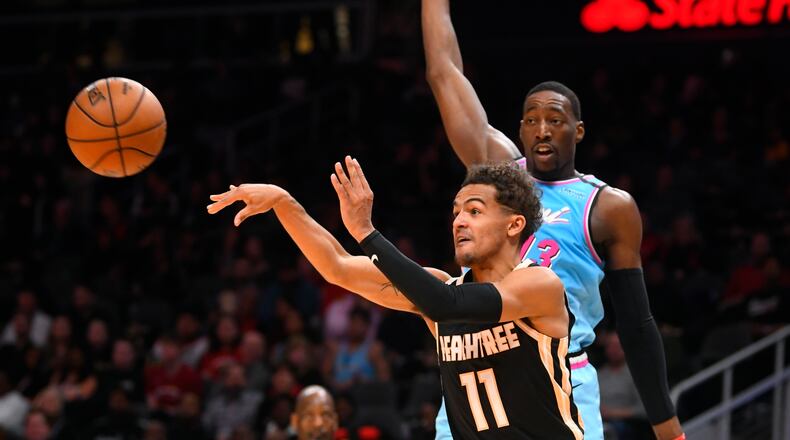At long last, a plan for the 2020-21 NBA season has materialized.
Teams like the Atlanta Hawks, who haven’t played a game since March 11, are about to go from zero to 60. Teams that went deep into the playoffs will face a remarkably quick turnaround, considering the finals concluded Oct. 11.
The NBA and the Players Association announced Monday that they had reached an agreement on a 72-game schedule to start Tuesday, Dec. 22. The deal is still subject to a vote by the league’s Board of Governors. Although starting on MLK Day, Jan. 18, 2021, was a popular alternative, the earlier start and shorter game schedule will prevent clashing with the Olympics in Tokyo.
The full, regular-season schedule will be released later, so the Hawks still don’t have as much information as they’d like. At the very least, the team has a start date as a frame of reference.
The Hawks hold the sixth pick in the Nov. 18 NBA draft. Free-agent negotiations start at 6 p.m. Nov. 20, with signings beginning at 12:01 p.m. Nov. 22.
Training camps open Dec. 1, per ESPN. That training camp period will be vital for Atlanta, who will need to get up to speed after an eight-and-a-half month layoff. The team did hold a brief minicamp in September, the only team activity permitted by the league for the eight teams excluded from the end-of-season bubble in Orlando, Fla. The team used that time to scrimmage and, for the first time, play five-on-five with center Clint Capela, who did not play during the season due to a nagging heel injury.
Whether fans will be allowed in stands is another looming question the league has yet to answer. Some cities still have limits on large indoor gatherings. However, according to The Athletic, the league hopes to hold games in arenas with between 25% and 50% capacity, taking social distancing, mask and testing precautions.
The league is facing massive financial losses because of the coronavirus pandemic, which the league and players also addressed in their joint statement.
A new system will be used to “ensure the parties’ agreed-upon split of basketball-related income (BRI),” the statement read. “In the event player compensation were to exceed the players’ designated share in any season, necessary salary reductions beyond the standard 10 percent escrow would be spread across that season and potentially the following two seasons, subject to a maximum salary reduction in any season of 20 percent.”
The escrow system will allow financial losses to be spread out more over time.
For the 2020-21 season, the salary cap will be $109.140 million and the tax level will be $132.627 million — also awaiting Board of Governors approval. Those are the same amounts used for 2019-20, so teams don’t have to scramble and adjust to a wildly different number based on the financial hit from COVID-19.
The Hawks project to have about $50 million in cap space. That spending power could have taken a hit had the cap been dramatically lowered.
After next season, cap and tax figures will increase by a minimum of 3% but no more than 10%. “Teams’ tax payments will be reduced in proportion to any BRI decreases,” according to the statement. That will benefit high-spending teams that are over the luxury tax line, though the Hawks don’t fall into that category.
About the Author
Keep Reading
The Latest
Featured


